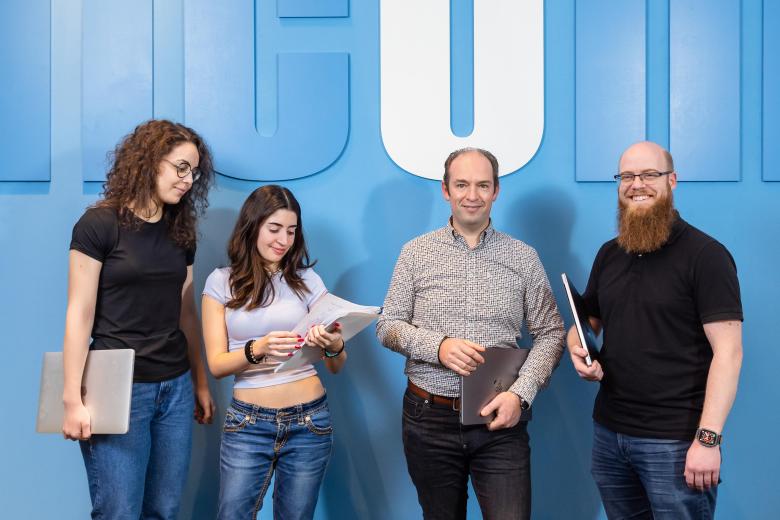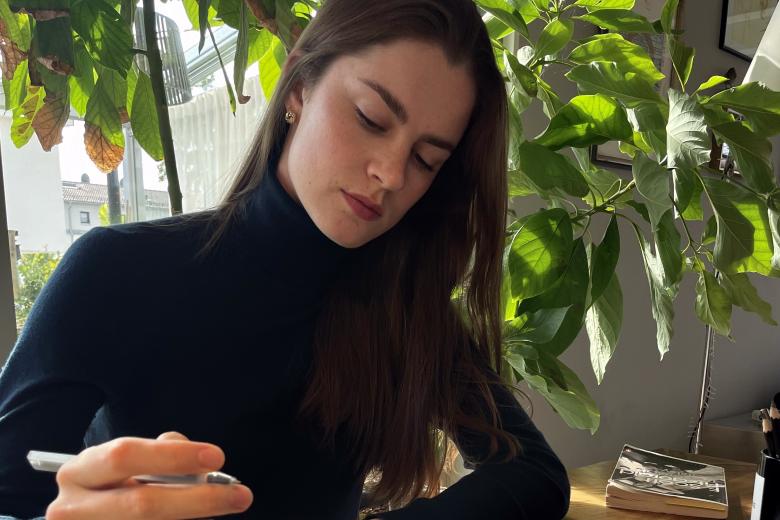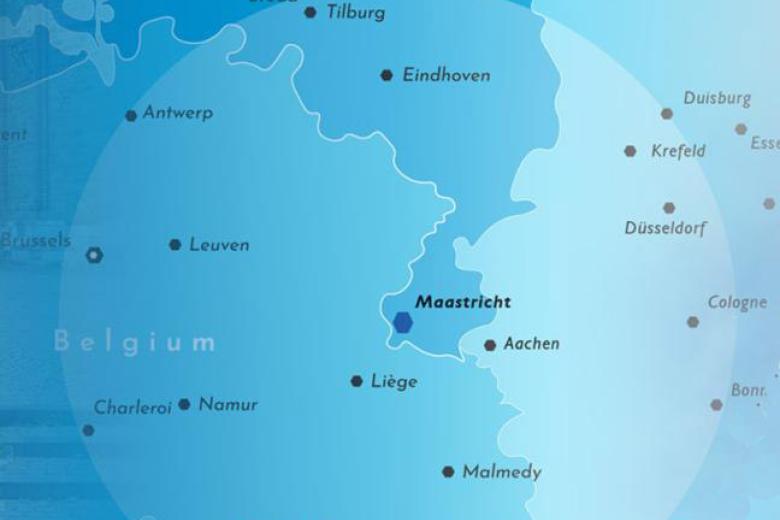Harm Askes: “Helping people excel, no need for showmanship.”
“We’re busy house-hunting in Maastricht,” says Harm Askes, who will become the new vice-dean of the Faculty of Science and Engineering (FSE) at Maastricht University on 1 December. He and his family are relocating to the south of the Netherlands. “My wife, who is also a professor, will be joining FSE. Our eldest daughter is already studying in Maastricht,” he laughs. “That was pure coincidence, but a happy one.”
Background
Askes worked at the University of Twente, where he was head of the Department of Civil Engineering and Management. His academic career began in the world of solid materials, computer simulations, and mathematical models. “I try to predict how materials behave,” he explains. “Think of plastic components in cars: how much force can they withstand before breaking? Or protective clothing for military personnel: how thick does a protective layer need to be to stop a bullet?” His work focuses on minimising costly experiments through clever simulations. “On a computer, you can tweak designs endlessly, while in the lab, every experiment takes time, money, and materials.”
Despite his passion for research, Askes, almost by accident, found himself in executive roles. “In Sheffield, where I was previously a professor, the position of department head came up. I was asked if I’d be interested, and I enjoyed it.” For many academics, administrative work is a necessary evil, but Askes sees it as an extension of his intellectual drive. “Whether I’m leading a research group or a department, it’s about creating a platform where people can build on each other’s work. That’s my idea of ‘intellectual legacy’, not just the number of papers, citations, or graduates, but the impact you have on the people around you.”

Human scale
As vice-dean, Askes will share responsibilities with dean Thomas Cleij. His focus? “I’m eager to help develop FSE further, but I also want to identify where we’re falling behind and where any blind spots might be.” Staff policy is of particular interest. In Sheffield, he launched initiatives to improve gender balance. “At first, I thought I was doing it mainly for my female colleagues. But it quickly became clear that everyone benefits from a culture where self-promotion isn’t the only path to success.” He wants to work with colleagues to create an environment where talent can flourish and be valued, without the need for sharp elbows. “A toxic work environment helps no one.”
His approach is pragmatic and people-focused. “I’m naturally curious, not just about materials, but also about how people interact. If something isn’t working, I try to fix it. Not by dictating, but by getting people to talk and find solutions themselves.” His calm demeanour helps. “I don’t lose my temper easily. If you walk through the halls with a positive, solution-orientated attitude and a smile, it rubs off on your colleagues.”

A rebellious faculty?
Askes senses an energy at FSE that appeals to him. “That combination of ambition and willingness to think outside the box suits me.” Does he see FSE as rebellious? “I associate rebellion more with my teenage years playing guitar in a rock band. In academia, we value traditions, but sometimes we need to let go of them. Why do we do things the way we’ve always done them? If something isn’t working, we need the will to change it. We’re engineers: we solve problems. And we should always ask: can we do better?”
A future in Maastricht
The new vice-dean hopes to stay involved in teaching and research despite his administrative duties. “I love teaching first-year students, they’re my favourite year group. I’ll be working four days a week as vice-dean and reserving one day a week for teaching and my research.”
His message is clear: “I look forward to a faculty where everyone, from first-year students to seasoned professionals, has the opportunity to thrive, with genuine appreciation for each other’s strengths.”

Also read
-
Companies unlock Maastricht University’s hidden talent
@Work students serve as a bridge between academia and industry, helping companies recognise the university’s strengths. “We’re a hidden gem that’s gradually being discovered, as more and more people learn that we are one of the largest academic data science and AI programmes in the Netherlands
-
If a machine can write a flawless essay, what’s left for the writer?
UCM graduate Robin van Wasen traces how writing has shaped her learning, identity, and voice, and asks whether AI, despite its fluency, can ever replace the intent, authenticity, and connection that define human writing.
-
DigiMach places Meuse-Rhine Euroregion at the heart of industrial digitalisation
DigiMach (Digital Machining) is a new cross-border project uniting Belgium, Germany, and the Netherlands around a common goal: accelerating the digitalisation of the machining industry in the Meuse-Rhine Euroregion.